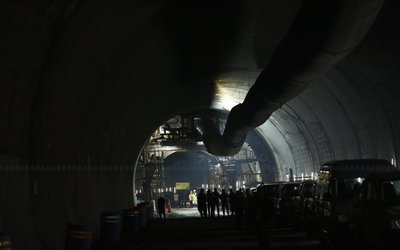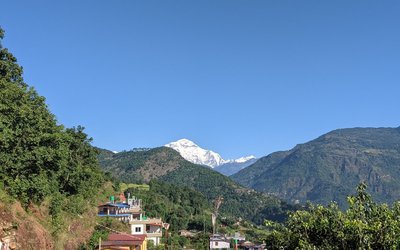As a Nepali, I had always dreamt of trekking to Everest Base Camp and seeing the old “mother of the skies” up close and personal. The only deterrent was the cost involved, for I had heard rumors of the trek being “commercially discriminating” against Nepalis. But the practice of charging Nepali and foreigners differently is common so I dismissed these as simply rumors. However what I saw in Naamche, not only left me appalled at the discrimination fellow citizens faced, but also made me wonder whether the tourism industry which was supposed to benefit all, was actually doing so.
It is no big secret that foreigners are charged differently and above Nepalis for any service in Nepal. Whether its taxi driver fleecing foreigners fresh out of the tarmac or hotels offering different rates for domestic and foreign tourists, different charges are a common practice in Nepal. While there is no doubt that foreigners with higher income have higher spending capacity, and perhaps it is characteristic of capitalism to give priority to those who can pay, but no one seems to be giving enough thought to the discrimination suffered by others.
My fears turned ghastly true, in a hotel in Naamche. As a part of a group that included 21 bideshi trekkers, four Sherpa guides, one Nepali trekking leader and myself, headed to Everest Base Camp, I was able to witness firsthand the negative and positive “commercially motivated” discriminations faced by Nepalis in Nepal.
“We have rooms for the foreigners but none for Nepalis,” said the manager of the hotel we had booked in Naamche, rather obnoxiously, when the Nepali trekking group leader and yours truly went to inquire about our bookings. Fortunately, our veteran trekking guide knew the hotel owner personally and managed to get him to talk to his manager to give us “Nepalis” rooms along with our “foreign” guests. Talking to the porters in our group, I realized that they were being accommodated elsewhere. Never before and nowhere else in Nepal had I as a Nepali citizen, felt more ostracized than here in the lap of Everest.
But the shock and awe did not end there. Looking around for the men’s room I followed the universal sign and came upon a door that to my utter disbelief and discontent had a notice in Nepali that read, “All Nepali friends, please use the outside toilet. Thank You”. Anywhere else in the modern world such a sign discriminating fellow citizens would have been burnt.
Yes, my fellow Nepali citizens who work in the trekking industry as guides, porters, kitchen staff and others cannot pay in crisp dollar bills like our foreign guests, and they might not have learnt the bathroom etiquettes that modernized Nepali hoteliers think all westerners have, but they are still Nepalis. If the tourism entrepreneurs are really serious about developing the industry here, they should be training those Nepalis involved in the tourism industry how to better present themselves, not putting up discriminating signs that reeks of racism. And that too in an industry that is supposed to be promoting hospitality.
Getting out of Naamche, along the trail to base camp, however, I soon realized that not all hoteliers and lodge owners were discriminating. The tea house and lodge owners beyond the competitive and bigger markets of Naamche or Lukla, were in fact even more hospitable to Nepalis than they were to foreigners. Nepali guides are welcomed as old friends even if you were a first timer, called to the kitchen served meat and drinks, allowed free charging of cell and camera batteries, and even given some snacks for the way. They might have to sleep in the dining halls for lack of rooms, but they are not asked to use different toilets. Capitalism and its entrapments are understandable, but if those promoting tourism really want to ensure Nepal’s tourism industry gets a good name, they should be investing more in the backbone of the industry, the guides, porters, kitchen staff, and even the yak, jokyo, mule, or donkey herder, and not discriminating against them as though they are second class citizens.
As the media made headlines of trekkers stranded in Lukla last week, I wondered what the Nepali guides were doing. Unsurprisingly so, not one media asked any of the Nepali guides, porters, and others about how they were doing.
- TANAHU HYDROPOWER PROEJCT: A Significant Achievement
- Apr 15, 2024
- AMBASSADOR HANAN GODAR: Sharing Pain With A Nepali Family
- Mar 30, 2024
- VISIT OF KfW AND EIB TO NEPAL : Mission Matters
- Mar 25, 2024
- NEPAL BRITAIN SOCIETY: Pratima Pande's Leadership
- Mar 24, 2024
- NEPAL ARMY DAY: Time To Recall Glory
- Mar 15, 2024















